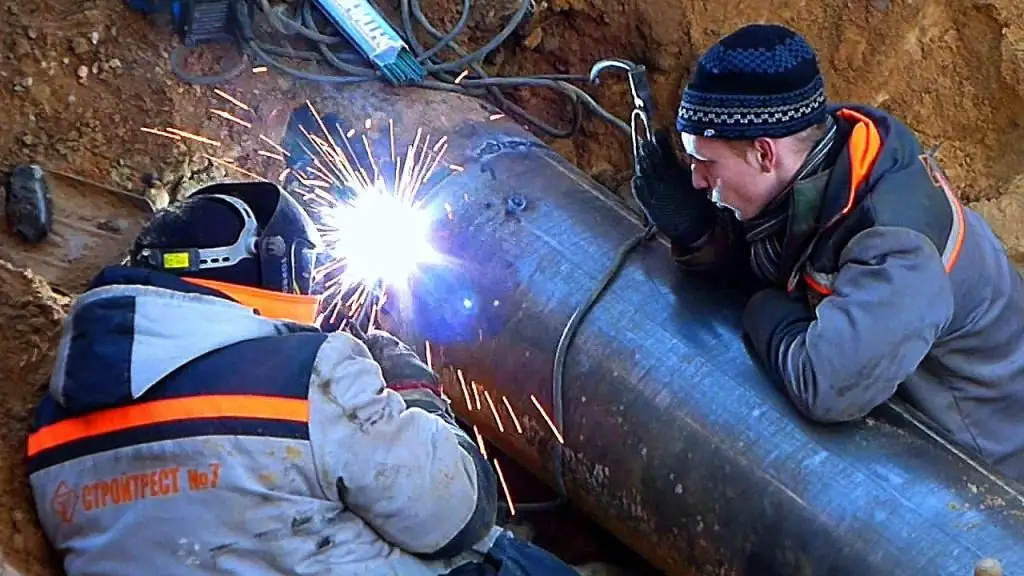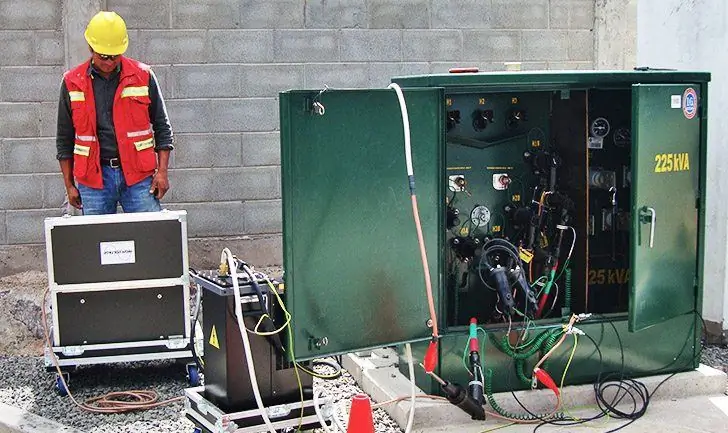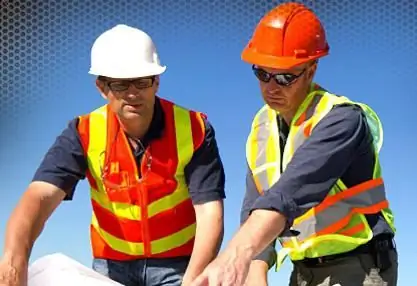2026 Author: Howard Calhoun | calhoun@techconfronts.com. Last modified: 2025-01-24 13:10:41
In modern production, unfortunately, there are accidents. However, there are special instructions, the observance of which helps to prevent disasters. Let's consider further the basic rules of industrial safety.

General information
In 1993, the International Labor Organization developed a convention for the prevention of major accidents in industrial plants and recommendations for their prevention. The obligatory work to prevent disasters in Russia is regulated by Federal Law No. 116 of July 21, 1997. Its provisions fix the basic norms of industrial safety.
Classification
According to art. 2 of this law, enterprises or their workshops, sites, sites, as well as other premises where:
- Harmful substances are obtained, processed, used, created, transported, stored and destroyed in certain volumes. These include toxicexplosive, combustible, oxidizing, flammable and other compounds.
- Equipment is used, the operation of which is carried out under a pressure of more than 0.7 MPa or at a water heating temperature of more than 115 degrees.
- Stationary hoisting mechanisms are used, as well as funiculars, cable cars, escalators.
- Get melts of non-ferrous and ferrous metals and alloys based on them.
- Mining, enrichment and underground activities are underway.
It should be said that in establishments that are not related to industry, the most common production facilities are hoists, pressure equipment, elevators and other dangerous structures.

Regulatory framework
Industrial safety of hazardous production facilities includes measures to prevent accidents and incidents. The latter concept means damage or failure of technical units, deviation from the technological process. A violation of safety requirements is also considered an incident. Legal regulation in this area, as mentioned above, is carried out by the provisions of Federal Law No. 116. In addition to it, industrial safety rules are also contained in other regulatory acts of the industry. If there are other provisions in the international treaty of the Russian Federation, higher world standards are subject to application in practice.
The provisions of the law apply to all organizations that carry outactivities in the area under consideration, regardless of their form of ownership. Other regulatory acts that mention industrial safety requirements are, first of all, documents that are approved for economic, organizational, legal and other support for the implementation of the provisions of the law.

General activities
Industrial safety and labor protection provide for certain responsibilities for entities involved in this industry. First of all, they include organizations operating production facilities.
Operating organizations
Enterprises using hazardous production facilities are required to:
- Have permits (license) for the use of space.
- Ensure the staffing of specialists who are involved in an industrial enterprise, according to established requirements.
- Allow to work persons who meet the required qualifications, who do not have medical restrictions or contraindications to carry out activities.
- Ensure timely and complete training and certification of occupational safety professionals.
- Organize and monitor compliance with instructions and recommendations established by law.
- Have regulations and technical documentation governing activities at a hazardous facility.
- Ensure availability and operationcontrol devices and systems.

Preventive measures
Industrial safety and labor protection include certain activities, the implementation of which helps to prevent or reduce the likelihood of disasters. These works include:
- Provision of expertise of buildings, diagnostics, testing, surveys of technical devices and structures used in the work. For these events, certain deadlines and procedures are established. The examination is carried out according to the order of the federal executive body exercising supervision in the area under consideration, or its territorial subdivision.
- Prevention of access to a dangerous object by unauthorized persons.
- Enforcement of substance storage guidelines.
- Development of a declaration on industrial safety.
- Conclusion of liability risk insurance contracts for damage caused during the operation of a hazardous production facility.
- Fulfillment of instructions and orders of the federal executive body for control in the area under consideration, its territorial divisions and officials issued in accordance with the authorities.

Liquidation
Industrial safety of hazardous facilities includes measures to eliminate the consequences of disasters. In particular,prescribed by law:
- Suspend activities at the enterprise independently or by order of the federal executive body for control, its territorial divisions and officials in the event of emergency situations, the discovery of new circumstances that affect the level of risk.
- Perform measures to eliminate and localize the consequences of disasters at facilities, assist government agencies in investigating the causes of the emergency.
- Participate in the technical identification of the factors that caused the accident, take measures to eliminate them and subsequent prevention of situations.
- To timely inform the population, territorial authorities, supervisory authorities and other organizations authorized in the field of industrial safety about the disaster at the enterprise.
- Take the necessary measures to ensure the protection of the he alth and life of specialists in the event of an accident.
- Submit to the federal executive body for control or its territorial subdivision information on the number of incidents and accidents, their causes, as well as the measures taken to eliminate the consequences and prevent repeated emergencies.

Industrial safety of production facilities: responsibilities of employees
Employees of these enterprises must:
- Follow the instructions and regulations provided for in legal acts and normative technical documentation, which establish standards for maintainingwork, the procedure for dealing with an incident or accident.
- Pass certification and training in the field of industrial safety.
- Notify the immediate supervisor or other officials in the prescribed manner about the incident or accident.
- Suspend work in the event of an emergency.
- Take part in the implementation of measures to eliminate the disaster at a hazardous industrial facility.
Factory managers are required to take all measures provided by law to maintain staff compliance with the schedule approved in accordance with instructions and recommendations.
Qualifications
Industrial safety of hazardous production facilities includes timely professional training and retraining of employees. Qualification requirements for specialists are established by the provisions of job descriptions, as well as tariff and qualification reference books. Industrial safety of hazardous industrial facilities implies that employees have special skills and special knowledge. In this regard, certain rules are established for certain categories of specialists involved in a particular industry. The instructions, in accordance with which the industrial safety of hazardous industrial facilities is ensured, are approved by the regulations adopted by Rostekhnadzor.

In closing
Industrial safety of hazardous industrial facilities includes not onlydirectly measures to protect the population and employees of the enterprise, localization and elimination of the consequences of disasters, but also the development and approval of special programs aimed at protecting property and people's he alth. Specialists should be trained in the actions to be taken in the event of an emergency. Industrial safety of hazardous industrial facilities provides for training in conjunction with certification of employees.
Recommended:
Safety precautions for a welder during work: standards, rules and instructions

Welder is not an easy profession, but very necessary and in demand. However, we all know that this type of activity is not the safest. Today we will look at the safety precautions that professionals must follow in order to avoid accidents while working
Industrial safety engineer: job description and vacancies

There are a lot of vacancies for an industrial safety engineer on the labor market, but in order to get this job, the applicant must have certain professional and personal qualities. Employers often prefer to hire specialists with higher education
Occupational safety specialist: job description. Occupational Safety Specialist: Key Responsibilities

As you know, every employee in any enterprise should have their own job description. The labor protection specialist is no exception to this rule. He, like other employees, has a number of duties and functions that undoubtedly require a detailed presentation on paper
Chemically hazardous objects: concept, classification and characteristics

Chemical hazardous objects are important and you need to know "by sight" in order to know the degree of danger in which you are, being in close proximity to them
High-voltage tests: purpose, algorithm, test methods, standards, protocol and compliance with safety rules

The operation of electrical equipment involves a number of high-voltage tests. They are very important for the correct operation of the devices. Their purpose. the algorithm for conducting, norms and compliance with safety rules are described in detail in this article

